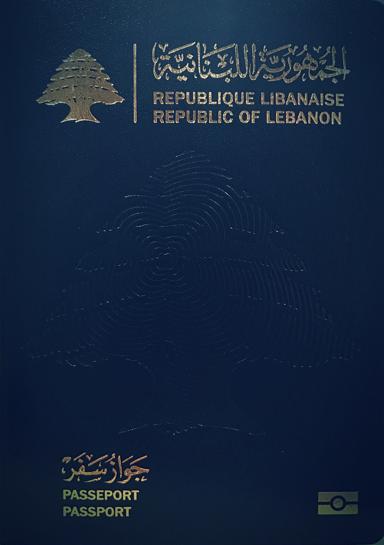
 Lebanon
Lebanon
 Lebanon
Lebanon Albania
Albania Antigua and Barbuda
Antigua and Barbuda Australia
Australia Bahamas
Bahamas Bahrain
Bahrain Benin
Benin Bhutan
Bhutan Botswana
Botswana Burkina Faso
Burkina Faso Cameroon
Cameroon Colombia
Colombia DR Congo
DR Congo Ivory Coast
Ivory Coast Cuba
Cuba El Salvador
El Salvador Equatorial Guinea
Equatorial Guinea Gabon
Gabon Guinea
Guinea Hong Kong
Hong Kong Indonesia
Indonesia Kazakhstan
Kazakhstan Kenya
Kenya Kyrgyzstan
Kyrgyzstan Lesotho
Lesotho Libya
Libya Malawi
Malawi Moldova
Moldova Nigeria
Nigeria Pakistan
Pakistan Papua New Guinea
Papua New Guinea Saint Kitts and Nevis
Saint Kitts and Nevis Sao Tome and Principe
Sao Tome and Principe Singapore
Singapore South Korea
South Korea South Sudan
South Sudan Tanzania
Tanzania Thailand
Thailand Togo
Togo Uganda
Uganda United Arab Emirates
United Arab Emirates Uzbekistan
Uzbekistan Vietnam
Vietnam Zambia
Zambia Zimbabwe
Zimbabwe Afghanistan
Afghanistan Algeria
Algeria Andorra
Andorra Angola
Angola Argentina
Argentina Austria
Austria Azerbaijan
Azerbaijan Bangladesh
Bangladesh Belarus
Belarus Belgium
Belgium Belize
Belize Bosnia and Herzegovina
Bosnia and Herzegovina Brazil
Brazil Brunei
Brunei Bulgaria
Bulgaria Canada
Canada Central African Republic
Central African Republic Chad
Chad Chile
Chile China
China Congo
Congo Costa Rica
Costa Rica Croatia
Croatia Cyprus
Cyprus Czech Republic
Czech Republic Denmark
Denmark Dominican Republic
Dominican Republic Egypt
Egypt Eritrea
Eritrea Estonia
Estonia Swaziland
Swaziland Fiji
Fiji Finland
Finland France
France Gambia
Gambia Germany
Germany Ghana
Ghana Greece
Greece Grenada
Grenada Guatemala
Guatemala Guyana
Guyana Honduras
Honduras Hungary
Hungary Iceland
Iceland India
India Ireland
Ireland Israel
Israel Italy
Italy Jamaica
Jamaica Japan
Japan Kiribati
Kiribati Kosovo
Kosovo Kuwait
Kuwait Latvia
Latvia Liberia
Liberia Liechtenstein
Liechtenstein Lithuania
Lithuania Luxembourg
Luxembourg Mali
Mali Malta
Malta Mexico
Mexico Monaco
Monaco Mongolia
Mongolia Montenegro
Montenegro Morocco
Morocco Myanmar
Myanmar Namibia
Namibia Nauru
Nauru Netherlands
Netherlands New Zealand
New Zealand Nicaragua
Nicaragua Niger
Niger North Korea
North Korea North Macedonia
North Macedonia Norway
Norway Panama
Panama Paraguay
Paraguay Peru
Peru Philippines
Philippines Poland
Poland Portugal
Portugal Romania
Romania Russia
Russia Saint Lucia
Saint Lucia San Marino
San Marino Saudi Arabia
Saudi Arabia Senegal
Senegal Serbia
Serbia Slovakia
Slovakia Slovenia
Slovenia Solomon Islands
Solomon Islands Somalia
Somalia South Africa
South Africa Spain
Spain Saint Vincent and the Grenadines
Saint Vincent and the Grenadines Sudan
Sudan Suriname
Suriname Sweden
Sweden Switzerland
Switzerland Taiwan
Taiwan Tonga
Tonga Trinidad and Tobago
Trinidad and Tobago Tunisia
Tunisia Turkmenistan
Turkmenistan Ukraine
Ukraine United Kingdom
United Kingdom United States
United States Uruguay
Uruguay Vanuatu
Vanuatu Vatican
Vatican Venezuela
Venezuela Yemen
YemenLebanon, a small yet vibrant country located in the Middle East, is a land of diverse landscapes, rich history, and a unique cultural blend. Surrounded by Syria to the north and east, and Israel to the south, its west coast is lapped by the Mediterranean Sea. Its climate varies from Mediterranean on the coast to semi-arid in the highlands, offering both sun-soaked beaches and snow-capped mountains.
Lebanon’s population of approximately 6.8 million people is composed of a mix of ethnic and religious groups, creating a rich cultural tapestry. The official language is Arabic, but French, English, and Armenian are also widely spoken. The culture is a blend of Middle Eastern, French, and Ottoman influences, visible in the architecture, cuisine, and traditions.
The Lebanese economy is a diverse mix of banking, tourism, food processing, wine production, and jewelry manufacturing. Despite political and economic challenges, it has shown resilience. The capital, Beirut, is a bustling hub of commerce, fashion, and entertainment, often referred to as the ‘Paris of the Middle East’.
Lebanon’s rich cultural heritage, natural beauty, and vibrant lifestyle make it a fascinating destination. However, potential visitors should stay updated on travel advisories due to occasional political instability. The Lebanese passport allows visa-free or visa-on-arrival access to 39 countries.